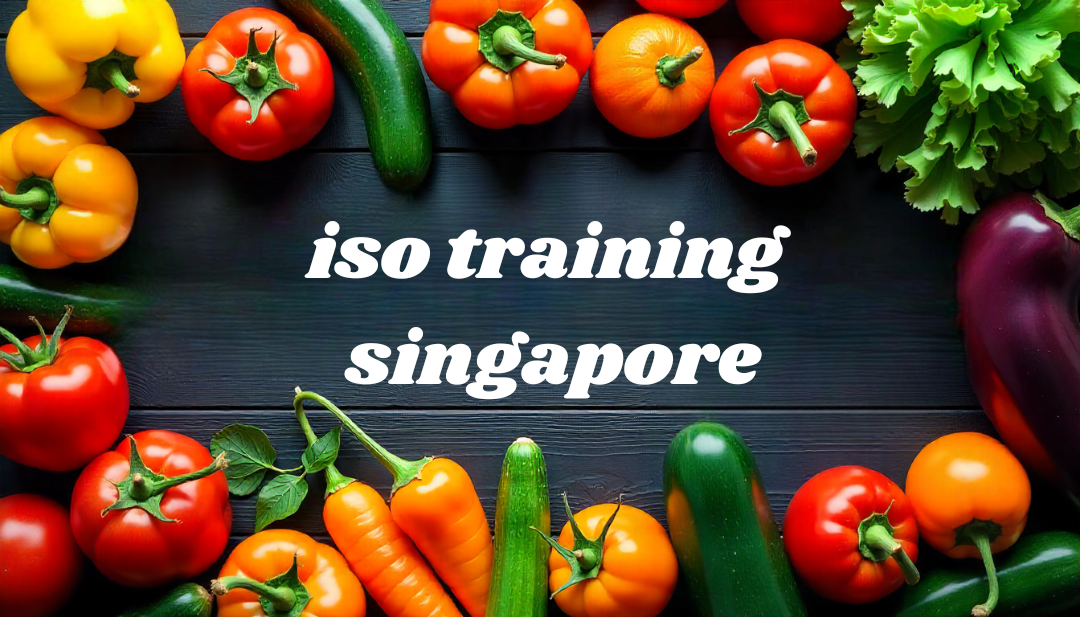Imagine this: you’re a food safety manager in Singapore, juggling supplier checks, hygiene protocols, and customer expectations in a city that’s obsessed with food. One slip-up—a mislabeled allergen, a storage glitch—could spell disaster. That’s where ISO training swoops in, like a sous-chef who’s got your back in a hectic kitchen. Specifically tailored for food safety managers, ISO training (think ISO 22000 or ISO 9001 with a food safety twist) equips you to keep your operations spotless and compliant. Let’s dig into why this training is your ticket to peace of mind and a thriving food business in Singapore’s fast-paced scene.
What’s ISO Training All About?
First off, let’s clear the air. ISO training for food safety managers isn’t about slogging through boring manuals—it’s about mastering systems that keep your food safe and your customers happy. ISO 22000, the go-to standard for food safety management systems (FSMS), is like a recipe for ensuring every step of your food chain, from farm to fork, is airtight. ISO 9001, while broader, also applies by helping you streamline quality processes across the board.
Why does this matter in Singapore? The Lion City’s food scene is world-class—hawker centres, Michelin-starred restaurants, and everything in between. But with great food comes great responsibility. The Singapore Food Agency (SFA) keeps a hawk-eye on compliance, and customers here aren’t shy about calling out slip-ups on social media. ISO training helps you stay ahead of the curve, ensuring your business doesn’t just survive but thrives.
Why Food Safety Managers Need This Training
You might be wondering, “I already know food safety—why bother with ISO training?” Here’s the thing: knowing the basics isn’t enough when you’re up against global standards and local scrutiny. Training sharpens your skills, turning you into a food safety ninja who can spot risks before they become headlines.
Here’s what’s in it for you:
- Stay Compliant: Singapore’s regulations are strict, and ISO training aligns your processes with SFA requirements and international standards.
- Boost Confidence: Knowing you’ve got a solid FSMS feels like nailing a perfect dish under pressure.
- Cut Risks: From cross-contamination to supply chain hiccups, training helps you catch issues early, saving money and reputation.
- Win Customers: In a city where foodies share everything on Instagram, a reputation for safety and quality sets you apart.
I once heard about a food safety manager at a local chain who thought training was “just paperwork.” After an ISO 22000 course, they revamped their supplier audits and caught a labeling error that could’ve led to a recall. That’s the kind of save that keeps you up at night—in a good way.
What You’ll Learn in ISO Training
So, what’s on the menu? ISO training in Singapore, offered by providers even local players like the Singapore Manufacturing Federation, blends theory with hands-on practice. It’s not about memorizing clauses; it’s about applying them to your kitchen, factory, or restaurant. Here’s a quick rundown:
- Understanding ISO Standards: You’ll get the lowdown on ISO 22000 (food safety) and how it meshes with ISO 9001 (quality management). Think of it as learning the rules of the game.
- Hazard Analysis: Master HACCP (Hazard Analysis and Critical Control Points) to identify risks like a detective sniffing out clues.
- Process Control: Learn to map your food safety processes, from storage to serving, ensuring nothing slips through the cracks.
- Audit Skills: Training covers how to conduct internal audits, spot nonconformities, and write reports that drive improvement, not just point fingers.
- Emergency Preparedness: From allergen recalls to equipment failures, you’ll learn to handle crises without breaking a sweat.
Sounds intense? It’s actually pretty approachable. Many courses include role-plays or case studies—like simulating a kitchen audit—that make the concepts stick. It’s like practicing a fire drill before the real thing.
Why Singapore’s Food Scene Makes This Training Essential
Let’s talk about Singapore for a second. This is a city where food isn’t just sustenance; it’s culture. From hawker stalls in Lau Pa Sat to high-end restaurants in Marina Bay, expectations are sky-high. Customers here will rave about your laksa one day and drag you on X the next if they find a hair in their plate. Plus, Singapore’s role as a global food hub means your suppliers might be local farms or international importers—each with its own risks.
Choosing the Right Training in Singapore
Not all training programs are created equal. Some feel like a dry lecture; others leave you fired up and ready to act. Here’s how to pick a winner:
- Flexible Options: Busy schedule? Many programs offer online, in-person, or hybrid formats. For example, SGS’s virtual ISO 22000 courses let you learn from your office or home.
- Local Expertise: Choose trainers who understand Singapore’s food industry—someone who’s audited a hawker stall or a food processing plant.
- Practical Focus: Look for courses with simulations or real-world case studies. You want to practice auditing a kitchen, not just read about it.
Pro tip: Check out feedback on platforms like LinkedIn or X to see what other food safety managers say about the course. Real-world insights can save you from a dud.
Overcoming the Hurdles
Training isn’t all smooth sailing. Time, cost, and team buy-in can be sticking points. Here’s how to tackle them:
- Budget Concerns: Look for group discounts or government grants—Singapore’s SkillsFuture often covers part of the cost for eligible courses.
- Team Resistance: Show your staff how training makes their jobs easier. Share stories, like how a trained manager caught a storage issue that saved a restaurant from a health scare.
I’ll be honest: some managers think, “I’ve got this under control.” But even the best can miss something. Training sharpens your instincts, like a chef honing their knife.
The Bigger Picture: Building a Food Safety Legacy
ISO training isn’t just about passing audits; it’s about building a business that lasts. In Singapore, where food is practically a national sport, a reputation for safety and quality is gold. Think of brands like BreadTalk or Old Chang Kee—they don’t just sell food; they sell trust. ISO training helps you do the same, whether you’re running a hawker stall or a food processing plant.
Plus, with 2025 trends like eco-conscious dining and transparency, ISO 22000’s focus on traceability and risk management aligns perfectly with what customers want. It’s like serving a dish that’s both delicious and Instagram-worthy.
Your Next Steps: Get Started Today
Ready to level up? Here’s a quick roadmap:
- Assess Your Needs: Where are your food safety gaps? Supplier issues? Kitchen protocols?
- Rally Your Team: Explain how training boosts their skills and your business’s reputation.
- Plan Smart: Book sessions during quieter times or opt for flexible online courses.
- Celebrate Progress: After training, share wins—like a smoother audit or a happier customer.
Wrapping Up: Your Recipe for Success
ISO training in Singapore isn’t just a to-do; it’s your chance to shine as a food safety manager. It equips you to navigate regulations, delight customers, and build a business that stands out in Singapore’s vibrant food scene. So, why wait? Grab this opportunity, and cook up a food safety system that’s as flawless as your signature dish.


